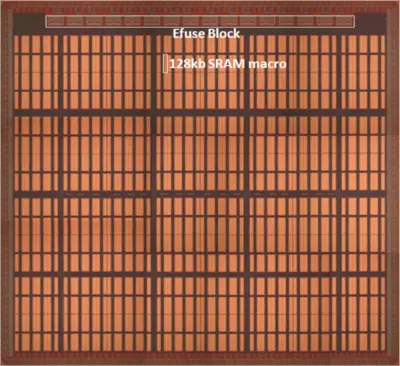From WikiChip
Difference between revisions of "16 nm lithography process"
(→Industry) |
|||
| Line 34: | Line 34: | ||
| 37 nm | | 37 nm | ||
|- | |- | ||
| − | | | + | | 34 nm || |
|- | |- | ||
| 90 nm || 1x | | 90 nm || 1x | ||
Revision as of 07:18, 4 April 2017
The 16 nanometer (16 nm) lithography process is a full node semiconductor manufacturing process following the 20 nm process stopgap. Commercial integrated circuit manufacturing using 16 nm process began in 2014. The term "16 nm" is simply a commercial name for a generation of a certain size and its technology, as opposed to gate length or half pitch. This technology is set to be replaced with 10 nm process in 2017.
Industry
| Fab |
|---|
| 1st Production |
| Transistor |
| Wafer |
| |
| Fin Pitch |
| Fin Width |
| Fin Height |
| Gate Length |
| Contacted Gate Pitch |
| Interconnect Pitch (M1P) |
| SRAM bit cell |
TSMC
TSMC demonstrated their 128 Mebibit SRAM wafer from their 16 nm HKMG FinFET process at the 2014 IEEE ISSCC.
16 nm Microprocessors
This list is incomplete; you can help by expanding it.
16 nm Microarchitectures
This list is incomplete; you can help by expanding it.
References
- Chen, Yen-Huei, et al. "A 16 nm 128 Mb SRAM in High-κ Metal-Gate FinFET Technology With Write-Assist Circuitry for Low-VMIN Applications." IEEE Journal of Solid-State Circuits 50.1 (2015): 170-177.
- Wu, Shien-Yang, et al. "A 16nm FinFET CMOS technology for mobile SoC and computing applications." Electron Devices Meeting (IEDM), 2013 IEEE International. IEEE, 2013.
- TechInsights/Chipworks, Kevin Gibb, The ConFab 2016
 Semiconductor lithography processes technology
Semiconductor lithography processes technology
